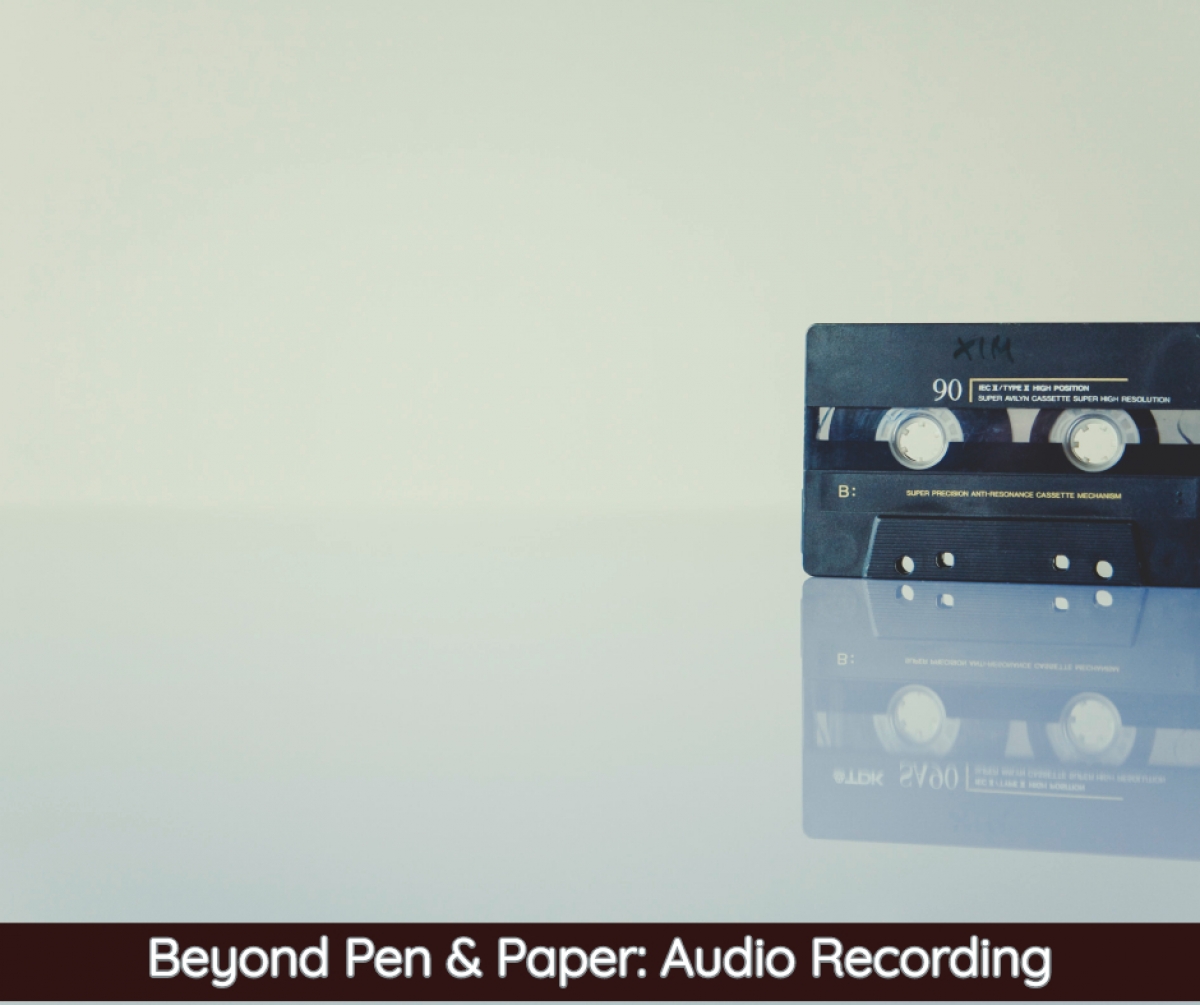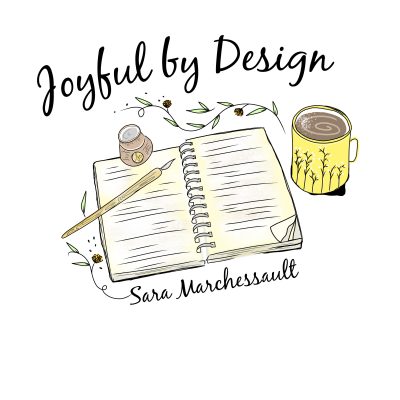
Who benefits from audio recording and why?
When you find your life is too busy to use a written journal to track the workings of your mind, audio recording is an effective alternative. Audio recording is speaking your thoughts aloud in a meaningful and conscious way, making a recording while you’re doing so.
This practice is great for journalers who enjoy both speaking and listening, perhaps more than they do reading and writing. You are speaking aloud, which means your brain is working to both say the words and listen to them as they are spoken. The things you say into the recorder will be more firmly cemented on your brain than thoughts that quickly flash through your mind. By using an audio recorder to capture your thoughts, you are moving them center stage in your consciousness.
Audio recording can be just as effective as keeping a pen and paper journal and is a great alternative for when you’re on the go and find yourself with the opportunity to think, but not the chance to write.
What do you need for audio recording?
An audio recording device is necessary. There is a list of options included here. Keep in mind you can use a microphone with any of these options to improve the quality of your recording or to create an opportunity to record when you are around other people. Why not experiment with the following approaches?
Smartphone app installed on your phone.
This is handy when you are already using your mobile device for other things. What I like about using a phone app is mobile phones are typically private. You do not lend them to others, so you don’t have to worry about other people accessing your most intimate thoughts and feelings.
You can record into your app and the audio is saved on your phone until you decide to move it to your computer. If you back-up your phone regularly you can set up a system where the audio files are stored on your computer and move them around as needed. One cautionary word– if you are issued a smartphone by an employer, you may want to check and see what rights they have regarding the files stored on your phone before you start storing personal information.
Another option is using software that will e-mail your recordings to you and then, once you receive them in your inbox, delete them from your phone.*
If you use the audio app journaling method, be sure to keep your phone locked with a secret code known. Otherwise your personal thoughts can be accessed by others, which could be embarrassing and awkward.
Recording directly into your computer. Your computer or laptop likely has a built in microphone. With recording software you can open up a new file, click record, and add to your audio journal. This can be tricky if you are in a house or workplace with a lot of people and background noise, but you can always close your door and spend even just a few minutes recording in your audio journal.*
If you are concerned about others overhearing you, try wearing a hands-free headset with a microphone. This way you can speak softly and still be audible. See my website for the latest headset suggestions.*
A voice recorder. Voice recorders are usually small, fit easily into your pocket or the inside pouch of your purse, are battery operated, and typically have a USB plug. This is my favorite way to keep an audio journal. I like to use a dedicated device that I don’t use for anything else. It’s easier to get files off the recording device than it is to get them off my smartphone. I like that the memory on this device is one hundred percent devoted to my audio journal. My voice recorder is usually in the car or purse for moments of inspiration when driving or when I’m in my office and want to shut the door to record.*
Tape recorder. I know, it’s outdated and might even seem silly, but this is still the most comfortable way to record audio for many people. If you’re not concerned with the quality of your recording, put in a tape, hit record, talk, and then store the tape. The downside is you are left with something physical to store. Tapes are also easy for another person to find and listen to, so if you are going for privacy, unless you have a great hiding spot, this might not be the one for you.
Storing your audio journal. You will need to set up a system for your computer files. This is as easy as creating a new folder: My Audio Journal. Password protect or hide the folder if you want to be sure no one else finds it. If you decide to make files you can date them or name them what you want. I recommend you do both. For example: 031514_Birthday Ideas or 040114_Work Issues.
Other options for storing your audio journal files are flash drives or burning to CD’s. These alternatives are useful if you would rather not store your audio journal on your hard drive for lack of space or to keep your files private. If you share your computer with others, it might make sense to store your files using a portable and private system.
If you record your audio journal in a digital format and store it on your hard drive, a flash drive, or a CD system, I strongly recommend you have a back-up system in place. There are several ways to do this. For journalers who might not be as tech-savvy, the easiest way to back up your files is to periodically save them in a second location. An additional flash drive, a second CD, or an external hard drive that plugs into a USB port all work.
Once you select your recording device, you are ready to start your audio journal. Then you need to have your recording device available and a place to use it. Record while you’re making dinner, while you’re waiting in line at the bank drive-thru, or while you’re out on your evening walk.
Press record and start talking. You might start out with something a little superficial. For example, “today is Monday March 10, 2014. The sun is shining and I’m looking forward to a busy week. I just dropped the kids off and am headed into work. I’ve been working a lot on…”
If you don’t know where to begin, why not describe the weather or what you can see right in front of you or where you are. These are all simple but good ways to get started if you are feeling hesitant, shy or embarrassed.
After a while, you will compile enough entries so your audio journal starts to feel like a substantial collection of your thoughts. If you don’t already have a system for storing your files, you’ll want to set one up. You may find you also want a system for how often you listen to your recordings. Similar to reviewing the writing in a good old-fashioned journal, you can review your audio journal for patterns and insight, to recall ideas, and review how you have grown through transitions and challenges.
Audio recording tips
- Start slowly and build up files over time.
- Don’t worry about sounding happy if you are angry. If you need to swear – swear! If you need to yell, do it.
- Express your feelings, as honestly as if you were writing in the pages of your journal.
- Look at your schedule and choose a time of day when you know you can record. Set an alarm on your phone to prompt you to use your voice recorder at those times.
- Don’t worry about setting up your back-up storage system right away. You can figure that out after you decide whether audio journaling works for you.
This article is an excerpt from Beyond Pen & Paper: 33 Experiments in Journaling. For more ideas about how to get the benefits of journal writing without keeping a traditional journal, check it out here.
Related Posts
Want to make journaling a habit? Try this
I’m currently reading Essentialism by Greg McKeown and I’m enjoying it. Probably because…
Experimenting with your Journal Writing
One of the questions I get asked about journal writing is if I journal everyday…
2 COMMENTS
Leave A Comment
This site uses Akismet to reduce spam. Learn how your comment data is processed.



Rachel McFerrin | 29th Dec 17
Is there an app or computer program you recommend for recording audio journals?
Sara Marchessault | 9th Feb 18
Hi Rachel!
Thanks for this great question. I have kept it simple myself and used the built in voice recorder on my smartphone. I like that it’s easy for me to find those files and I’m already familiar with using my smartphone voice recorder. If you have an app you’re thinking about trying let me know. I’d be happy to try it too and we can compare feedback.